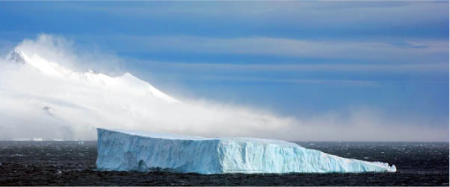| SEARCH |
-

Nov 17, 2015
Reflections on a three-decade legacy
The International Geosphere-Biosphere Programme (IGBP) will come to a close at t...
-
Nov 17, 2015
Use of and access to content on this website
Text and images produced by IGBP in house are free to use with appropriate credi...
-
Nov 12, 2015
Bella Gaia performance and panel discussion to mark IGBP's closure
A musical performance by Bella Gaia will celebrate the achievements and legacy o...
-

Towards Future Earth:
evolution or revolution?
During its three decades of existence, the International Geosphere-Biosphere Pro...
-
A personal note on IGBP and the social sciences
Humans are an integral component of the Earth system as conceptualised by IGBP. João Morais recalls key milestones in IGBP’s engagement with the social sciences and offers some words of advice for Future Earth.
-
IGBP and Earth observation:
a co-evolution
The iconic images of Earth beamed back by the earliest spacecraft helped to galvanise interest in our planet’s environment. The subsequent evolution and development of satellites for Earth observation has been intricately linked with that of IGBP and other global-change research programmes, write Jack Kaye and Cat Downy .
-
Deltas at risk
Around 500 million people worldwide live on deltas, but many of the world's deltas are sinking due ...
-
Climate change: the state of the science
A new data visualization released on the first day of the plenary negotiations at the UNFCCC’s clima...
-
Climate Change:
the State of the Science
Videos now online from the Stockholm public forum to mark the launch of the IPCC's climate report, 2...
History and Evolution of primary productivity studies of the Southern Ocean
El-Sayad S Z (eds)
Vol 28; Issue 6; pp. 423-438

The main objective of the article is to give an overview of the history and evolution of phytoplankton research in the Southern Ocean during the past century and a half. It traces the evolution of phytoplankton investigations as it went through several phases commencing with intensive collecting and cataloging and leading to the Discovery investigations with its extensive and detailed studies of Southern Ocean phytoplankton. Following, in the footsteps of the Discovery was the USNS Eltanin with its specialized cruises that centered around the study of the ecology of the primary producers and the dynamics of the lower trophic levels of the food chain. Spurred by the findings of the Eltanin cruises and with the growing concern over the impending exploitation of the Antarctic marine living resources, in particular krill, the BIOMASS program was initiated. The program was the first international collaborative effort to study the dynamic functioning of the Antarctic marine ecosystem. The success of the program has rekindled great international interest in the Southern Ocean which resulted in an explosion of programs such as SO-JGOFS, SO-GLOBEC, EPOS, and several others. In recent years, there has been a major shift in phytoplankton research in the Southern Ocean. This was in response to worldwide concern over the effects of global warming and stratospheric ozone depletion on species diversity, primary production and ecosystem function. This has led to process-oriented programs to study phenomena and processes of global significance in which Antarctica and its surrounding seas play key roles.

IGBP closed at the end of 2015. This website is no longer updated.
-

Global Change Magazine No. 84
This final issue of the magazine takes stock of IGBP’s scientific and institutional accomplishments as well as its contributions to policy and capacity building. It features interviews of several past...
-

Global Change Magazine No. 83
This issue features a special section on carbon. You can read about peak greenhouse-gas emissions in China, the mitigation of black carbon emissions and the effect of the 2010-2011 La Niña event on gl...
-
INTERGOVERNMENTAL PANEL ON CLIMATE CHANGE:
How green is my future?
UN panel foresees big growth in renewable energy, but policies will dictate just how big.
-
UK:
'The Anthropocene: a new epoch of geological time?'
Royal Society, Philosphical Transactions A




















